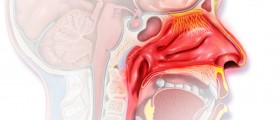
According to the Centers for Disease Control and Prevention, 405,000 people across the world lost their lives to malaria in 2018, with death rates dropping rapidly thanks to increased efforts to medicate this contagious illness properly.
The medication quinine sulfate is still widely used to cure malaria. Quinine is an effective and successful treatment for malaria as well as being a fever reducer and pain reliever, but there is a possibility that some reactions. As well as potential side effects, some people will also suffer from quinine allergies.
Quinine: Possible side effects
Even in people who are not allergic to quinine, side effects can occur. The side effects of quinine are collectively called cinchonism (after the cinchona tree, from which quinine is derived).
The many symptoms pointing to quinine side effects include:
- Diarrhea
- Nausea and vomiting
- Abdominal cramping, diarrhea, and other gastrointestinal symptoms.
- Vertigo.
- Tinniutus (ringing in the ears) and even hearing loss.
These side effects can strike people who do not have allergic reactions, but a quinine allergy is the most serious side effect of quinine.
What are the symptoms of a quinine allergy?
An allergic reaction to quinine can become a medical emergency very rapidly.
Besides the side effects also seen in people without quinine allergies, lots of patients have cardiovascular and respiratory side effects such as wheezing while breathing, difficulty breathing, shortness of breath, coughing, and heart palpitations. Other patients experience psychological or neurological symptoms like confusion, fainting, anxiety. Also other possibilities are redness and swelling, itching and swelling of the face.

















Your thoughts on this
Loading...